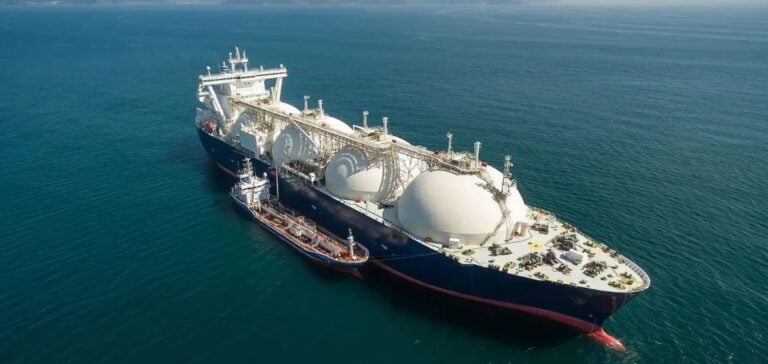JERA Co. Inc. recently announced a new growth strategy that integrates three strategic pillars: liquefied natural gas (LNG), renewable energies, and hydrogen & ammonia. This approach aims to meet global energy challenges while ensuring sustainability, accessibility and energy stability.
Ambitious targets for 2035
By fiscal year 2035, JERA has set itself specific targets for each of its three pillars:
- LNG s goal is to achieve a transaction volume of over 35 million tonnes.
- Renewable energies: develop 20GW of capacity.
- Hydrogen & ammonia Hydrogen & ammonia: manage around 7 million tons.
Optimized organization
To achieve these objectives, JERA has structured its operations into three key areas: business development, optimization and operation & maintenance (O&M). This structure is supported by leading experts from Japan and around the world, working closely with the business groups to ensure the agility and scalability required for cross-regional collaborations.
Financial Strategy and Investments
JERA also presented its financial strategy with clear objectives:
- Consolidated net profit of JPY 350 billion.
- EBITDA of JPY 700 billion.
- A total investment of JPY 5 trillion (JPY 1-2 trillion for each business pillar), with flexibility of allocation in line with external changes.
Environmental commitments
JERA is committed to reducing CO2 emissions intensity by 20% by 2030, total CO2 emissions by 60% by fiscal year 2035, and achieving zero CO2 emissions by 2050. To achieve these goals, the company plans to phase out inefficient coal-fired power plants by 2030 and convert 100% of the remaining coal-fired power plants to ammonia by the 2040s.
Global Collaboration and Innovation
JERA’s strategy is also based on strategic collaborations with global partners. Yukio Kani, JERA’s Global CEO, stressed that the company would not simply adapt to the global energy landscape. Collaborations based on shared goals and a culture of diversity and openness are essential to transforming the energy sector. JERA’s new growth strategy, focused on LNG, renewable energies and hydrogen & ammonia, marks a step towards a sustainable energy transition.






















